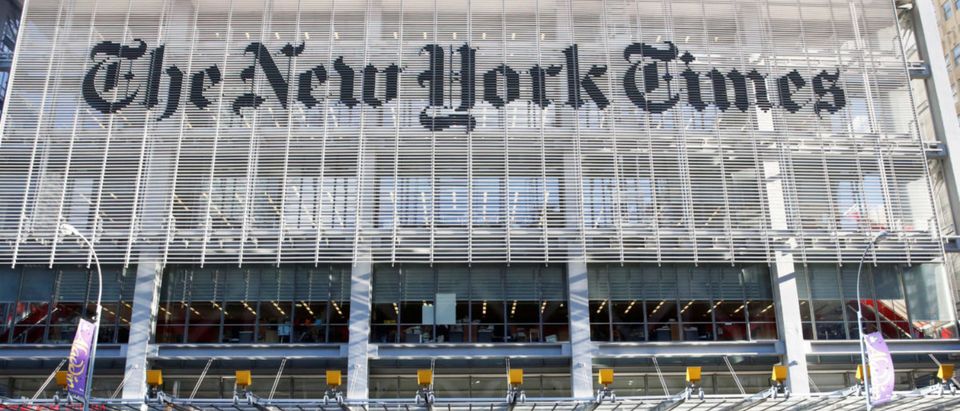The New York Times will continue offering its expensive tours of Iran despite protests in the country against the Iranian regime, which the United States government has designated the number one state sponsor of terrorism.
The company is selling nine different 13-day tours of Iran in 2018. Individual tickets for the program, “Tales from Persia,” cost $7,895. The weighty price tag doesn’t include your flights to and from the Islamic Republic, but it does buy you the companionship of a handful of Times “experts” to accompany you on the trip, in addition to the state-approved domestic tour guide.
The trip itinerary includes two days in Isfahan, which is currently a focal point of the anti-regime protests that have left at least 21 people dead.
A spokesman for the Times said they have no plans to cancel any of the Iran trips but said the company is monitoring the protests and is keeping in touch with their contacts “on the ground.” (RELATED: Trump Blasts ‘Failing’ Iran, Calls For Major Change)
The Iran trip is one of dozens of expensive global tours that the Times sells to elite customers under its “Journeys” program. The company insists that its tourism business is separate from its newsroom, although Times journalists frequently serve as traveling experts whose journalistic expertise is a major selling point for the company.
The crown jewel of the Times’ Journeys program is a 26-day private tour of the globe by private jet, which includes private rooms and an in-flight chef. The tour, “Around the World by Private Jet: Cultures in Transformation,” costs $135,000 and requires a a $7,500 deposit up front. The trip features 16 lectures by experts including Times columnist Nicholas Kristof and Times Washington editor Elisabeth Bumiller.
The paper’s side business as tour guides in a terrorist-funding regime has generated controversy in the past. In 2015, critics pointed out that their Iran trips provided financial benefits to the Iranian regime, even as they publicly criticized the Iranians for imprisoning Washington Post journalist Jason Rezaian, who was freed as part of a prisoner exchange in 2016.
Foreign Policy’s James Kirchick argued at the time that “it stands to reason that the Times would jeopardize its newfound business relationship with Iran if Tehran no longer approved of the paper’s coverage.”
“What is ethically dubious is an ostensibly impartial news organization engaging in a mutually advantageous moneymaking venture with an authoritarian regime holding an American journalist hostage,” Kirchick added.
Iran’s government has seen a sharp increase in tourism revenue since the Obama administration eased sanctions against the regime as part of the 2015 Iran nuclear deal. (RELATED: Iran Remains ‘Foremost State Sponsor Of Terrorism’)


